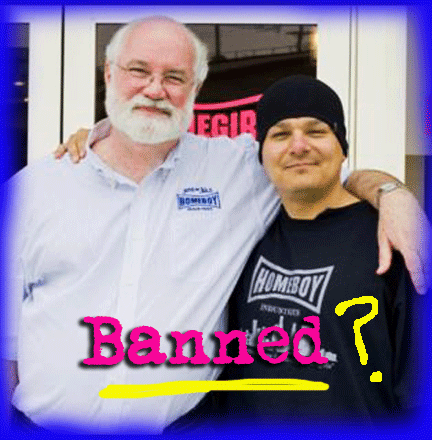WHY HAVE SOME JUVIE PROBATION OFFICERS BANNED HOMEBOY INDUSTRIES?
by Matthew Fleischer
On first weekend of April, Homeboy Industries founder Father Greg Boyle was making his usual rounds to LA County’s various juvenile probation facilities, when he had a strange conversation with three female probationers.“I asked them when they were coming to see me at Homeboy,” he remembers. “They told me, ‘We can’t. Our probation officer won’t let us.’ I thought, ‘Huh? That doesn’t sound right,.”
Homeboy Industries has a national reputation for its nearly 25 years of work with at-risk youth and former gang members from all over Los Angeles County. Thanks to a $1.3 contract with Los Angeles County, LA County juvenile probationers are supposed to be given preferential access to Homeboy’s formidable array of wrap-around services: tattoo removal, counseling and job training to name just a few. Boyle makes a point of encouraging kids to show up during the first week after their release when they are trying to repurpose their lives.
But, says Boyle, probation officers explicitly told these three girls they were not allowed to spend time at Homeboy. It wasn’t the first time he’d gotten word of such directives. Boyle says he’s aware of at least 10 kids who desired to come to Homeboy for help but were prevented from doing so by their probation officers. “When I first heard about this happening I thought it was a mistake,” he says, “but this has been going on for months now.”
Homeboy’s director of legal services Elie Miller says she has had her own experiences with the anti- Homeboy prohibition. In one recent incident she dealt with a mother whose son had a job at Homeboy—but was forced to quit by his probation officer. “She was upset and came by to ask what she could do,” says Miller. “Here’s a mother excited her son is able to come somewhere for services, and the probation officer makes an arbitrary decision to halt that rehabilitation. It’s insane.”
So why are county juvenile probation officers denying kids in need of help the chance to work at Homeboy Industries? It certainly isn’t because of Homeboy’s performance, says UCLA researcher Jorja Leap, who was hired by the county to evaluate the effectiveness of Homeboy’s county-sponsored programs. In the first quarter of 2012, none of the 30 enrollees in Homeboy’s comprehensive Job Readiness and Job Placement Service Program were re-arrested.
“We’ve been following these kids very closely,” says Leap. “We’re finding that once they’re enrolled at Homeboy, there is virtually no recidivism—roughly 96 percent stay in the program. That is outstanding and virtually unprecedented.”
Nevertheless, says Father Boyle, probation officers are telling kids that working at Homeboy is a violation of the terms of their probation–because gang members are known to be on the premises, or former gang members anyway.
“That’s akin to telling an alcoholic he’s not allowed to go to AA because there will be other alcoholics there,” says Boyle. “It makes zero sense.”
Calvin Remington, deputy chief of the LA County probation department, agrees. I called him on Monday and asked if he thought working at Homeboy was a breach of probation protocol, due to the presence of gang members. “Absolutely not,” he replied. “We’d have to shut down our probation camps if that were the case.”
Remington assured me that there was no top-down directive from the probation department to steer kids away from Homeboy. But he also made it clear that Homeboy isn’t the perfect fit for all juvenile probationers—which could explain why probation officers discouraged certain individuals from attending. “For some kids less is better,” he said. “If you have a lightweight kid, there’s no reason to send them to Homeboy. Homeboy is for the deep-in kids: for the kids who need lots of help and need it quick.”
That caveat aside, Remington says there isn’t any other reason POs should be discouraging enrollment in Homeboy’s programs. “It’s possible that certain probation officers who are unfamiliar with the program could have told their kids to stay away from Homeboy,” he says. “We’ll look into it.
“I’ve known Father Boyle for a long time,” Remington continues. “I have tremendous respect for him and he provides a real service to the whole community.”
For his part, Boyle agrees with Remington that is likely a case of a small number of probation officers who haven’t done their research regarding Homeboy, its services and its rate of success. “Look, we have no shortage of kids looking to access our services,” says Boyle. “We’re not dependent on the probation department to help fill our caseloads. But I would hate to see someone denied the option to come here who really wants to turn their life around. The problem with many of these kids is a lethal absence of hope. Hope is our currency here at Homeboy.”

